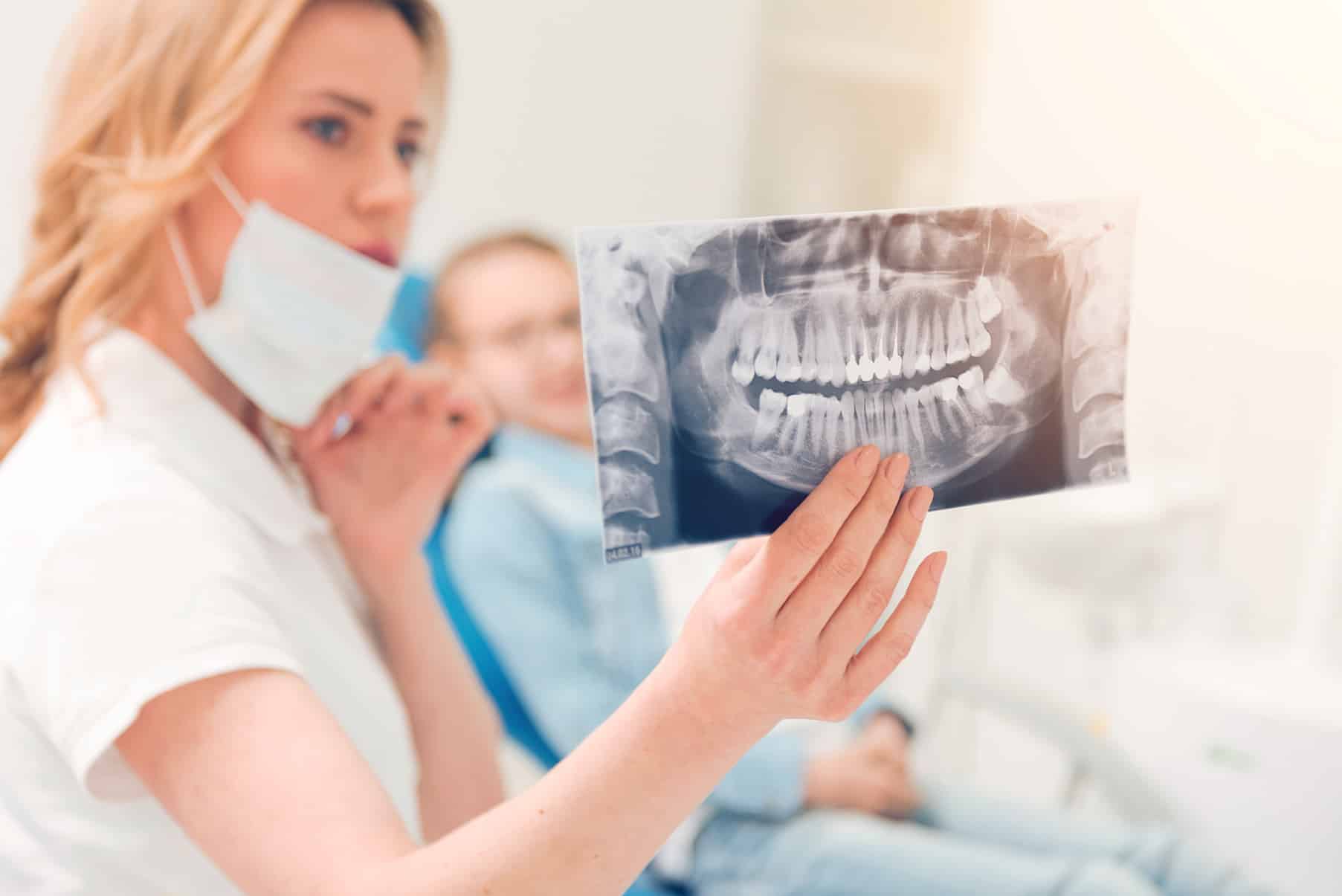Wisdom Tooth Extraction in Louisville, CO

Did you know that your wisdom teeth can be extracted at The Dentist in Louisville? We proudly offer this service to our patients in Louisville, Colorado. Our wisdom tooth extractions range from wisdom teeth that have come into the mouth entirely to wisdom teeth that are impacted under the bone. In some cases, we will not perform due to higher potential risks, and we will refer to oral surgeons in our community. However, thanks to our extensive experience with extractions, most patients can receive this treatment safely and at a greatly reduced cost right here at The Dentist in Louisville.
What are Wisdom Teeth, and Why Do They Need Extraction?
Wisdom teeth are an extra set of molars for which most people do not have enough space in their mouths. Because of this, they can damage the other teeth in your mouth or become infected because they are impossible to brush and keep clean. This means removing the problematic teeth is recommended to keep the rest of your mouth healthy.
Why Do We Have Wisdom Teeth?
Wisdom teeth have become nearly obsolete in the present but were incredibly important for our distant ancestors. When we had a more dense diet that was tougher to chew and uncooked, the jaws were much more broad, meaning the extra set of molars was easy to accommodate and significantly increased the ability of our ancestors to chew their food. However, when we learned to cook food, our diets were much easier to chew and digest, which increased our brain size and decreased our jaw size. As the jaws became smaller and more narrow, wisdom tooth impaction became very common, leading to many problems such as pain, infection, and damage to nearby teeth.
How Do You Know if You Need to Get Your Wisdom Teeth Pulled?
When you come to your routine dental checkup, we take panoramic x-rays to determine the development level of your wisdom teeth and whether there will be enough space for your wisdom teeth to grow. By doing these x-rays, we can have conversations early-on about when it is appropriate to proceed with the removal of wisdom teeth.
If you get your wisdom teeth extracted appropriately, you will have the easiest possible experience during the extraction procedure and the healing phase afterward. Additionally, you will avoid damage to any other teeth and the risk of infection.
What is the Right Age for Wisdom Tooth Extraction?
The appropriate age for wisdom teeth extraction depends entirely upon the individual. The ideal window for removing wisdom teeth is between 18 and 25. The ideal time for you will be when your jaw can more easily allow the teeth to be removed while the roots of the wisdom teeth are still incomplete. We can help you determine the right time for your wisdom tooth extraction.
What is Wisdom Tooth Removal Surgery Like?
At The Dentist in Louisville, we rely on oral sedation to remove wisdom teeth. This means that you will be awake but relaxed. We ensure you are properly numb before beginning treatment and that you have music or a show to enjoy throughout the procedure.
The extraction begins with the removal of the tissues that are in the way. If the wisdom teeth are impacted beneath the bone, the dentist will use a drill to reach the wisdom teeth through the bone. At this point, the teeth can be removed from your mouth, sometimes in sections. After the wisdom teeth have been fully removed, the dentist may need to put stitches to close up the area.
What is the Recovery Time for Wisdom Tooth Removal?
You should make no plans for the remainder of the day after having your wisdom teeth removed. There will likely be pain, bleeding, and swelling in your mouth during the first 24 hours after the procedure. The extraction site may take up to six weeks to heal completely, but most patients can return to regular activities after 24-48 hours. Symptoms are usually greatly improved by the third day after the procedure. It is important to understand that while regular daily activities are ok after 24-48 hours, strenuous activity must be avoided for about one week after removing wisdom teeth. This is important to avoid a dry socket, which is extremely painful.
Who Knew Visiting The Dentist Could Be So Enjoyable?
Short answer: our patients. Come see for yourself today.
What are the Potential Risks of Wisdom Tooth Extraction?
Two very common risks with wisdom teeth removal are nerve damage and sinus perforation.
- Nerve damage. The lower wisdom teeth have roots that get very close to the nerve that runs through your mandible, and removing these teeth can cause trauma to that nerve. This rarely creates permanent damage, and when the risk is high, we will refer you to an oral surgeon for removal.
- Sinus perforation. Upper wisdom teeth have roots that are sometimes partially inside the sinus in your cheek. Removal of these teeth can cause trauma to the sinus, which takes time to heal. As long as you follow the recommendations, this will heal without issue.
While we recognize that the side effects of extracting wisdom teeth are significant, they are insufficient reasons to delay treatment. We do everything we can to mitigate these risks and educate you beforehand so that you know what to expect. Because we care about the experience during and after wisdom tooth extractions, we invested in a CBCT machine, which can take a 3-D X-ray of your jaw. This can help us visualize where the wisdom teeth are relative to important structures and help us form a strategy regarding the best route for removal.
How Much Does Wisdom Tooth Extraction Cost?
We will let you know how much your specific wisdom tooth extraction procedure will cost beforehand. Costs vary depending on the condition of the teeth, how they are positioned in your mouth, and if there are any complications. Dental insurance plans often cover part of the cost.

Let’s Discuss Your Wisdom Teeth
All wisdom teeth extractions begin with an examination. At The Dentist in Louisville, you can feel confident that we have the experience and skills necessary to remove your wisdom teeth safely. Contact us to schedule an appointment at our convenient Louisville, Colorado, dental office.
